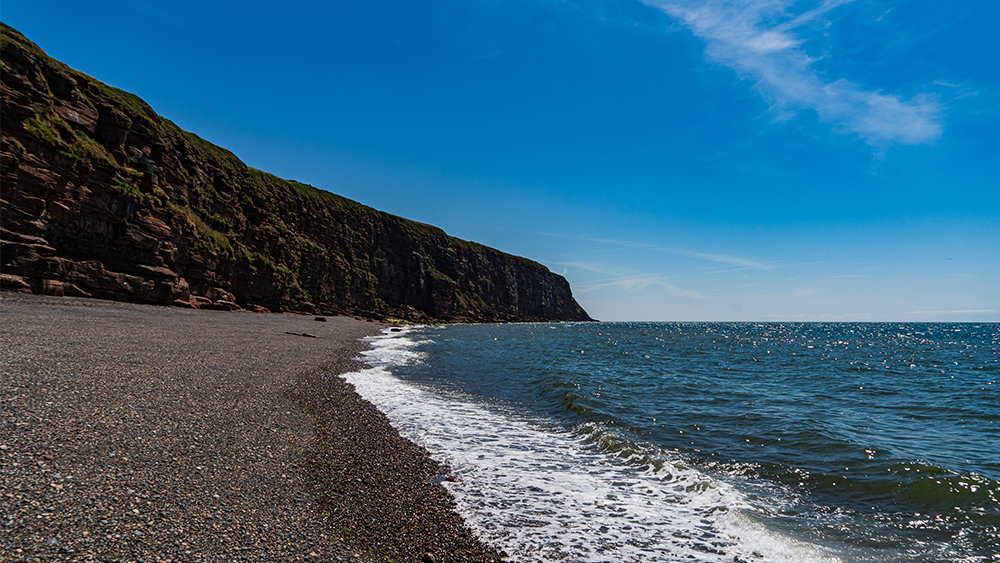
Sedimentary Rock Does Form Fast!
A recent study published in Geology found that sedimentary rock can form in as little as 35 years.1,2 Before this, conventional geologists thought these types of rocks took vast amounts of time to erode, consolidate, and lithify. What they discovered along the coast of Scotland caused them to quickly change their minds.

Big Fish Fossil Recalls Big Flop
One of the most famous living fossils is back in the news. The coelacanth is an endangered deep-sea fish. Its fins fit to unique, wrist-like bones, and unique bony plates envelop what scientists call its lung, which is like the swim bladder that controls buoyancy in other fishes.

How Algae Do Fine When Tossed at Sea
How would you do if someone spun you around every few seconds all day long? Marine algae repeatedly get tossed about in coastal surf, and they cope quite well. Researchers want to find out how. The latest set of experiments has revealed built-in machinery that helps these single-celled creatures thrive amid the turbulence.

Plate Beneath China Verifies Rapid Subduction
Scientists have identified a large slab of cold oceanic lithosphere1 dipping far beneath China.2 The newly imaged plate is presumably a leftover piece of ocean that was consumed as the Indian subcontinent collided with Asia, forming the Himalayan Mountains.








